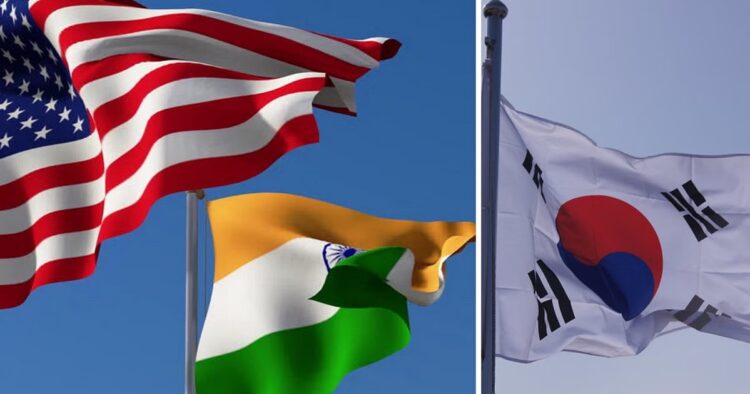In a bid to enhance the semiconductor supply chain, the United States, Bharat, and South Korea collaborated in their first trilateral technology dialogue. The meeting, held in Seoul, aimed to broaden horizons in semiconductor production and technology. This significant gathering followed the inauguration of the US-Bharat initiative on Critical and Emerging Technology (ICET) in January 2023 and the subsequent US-ROK Next Generational Critical and Emerging Technology Dialogue in December 2023.
The dialogue was led by notable figures including Senior Director Tarun Chhabra from the U.S. National Security Council, Deputy National Security Advisor Wang Yunjong from the ROK National Security Office, and Joint Secretary Lekhan Thakkar from the Bharatiya National Security Council Secretariat. Together, the delegations pledged to collaborate on various critical fronts, including semiconductor supply chains, telecommunications, artificial intelligence, quantum computing, space technology, clean energy, defense industrial development, biotechnology, and more.
During the session, the three nations deliberated on opportunities to foster cooperation across multiple sectors. These include semiconductor supply chains, telecommunications and digital infrastructure, artificial intelligence, quantum computing, space technology, advanced materials, clean energy, critical minerals, defense industrial development, and biotechnology. The aim is to leverage each other’s strengths and resources to develop a robust and reliable technology ecosystem not only in the Indo-Pacific region but also globally.
Prime Minister Narendra Modi of Bharat, addressing a gathering at “India’s Techade: Chips for Viksit Bharat” in Dholera, emphasized Bharat’s ambition to emerge as a semiconductor hub. He highlighted Bharat’s shift towards rapid decision-making and policy reforms, stressing the need to capitalize on opportunities in semiconductor manufacturing. PM Modi acknowledged past setbacks in Bharat’s semiconductor endeavors, attributing them to a lack of will and decisive action. However, he expressed optimism about Bharat’s future prospects in semiconductor production, aligning with recent dialogues and developmental projects aimed at bolstering Bharat’s semiconductor industry.
The recent dialogue in Seoul and Bharat’s semiconductor initiatives reflect the government’s commitment to establishing the country as a prominent player in semiconductor manufacturing. With the global semiconductor supply chain facing disruptions due to geopolitical tensions, collaborations like these are crucial for fostering innovation, enhancing technology capabilities, and ensuring a sustainable and resilient semiconductor ecosystem. As the three nations continue to work together, the prospects for advancements in semiconductor technology and its widespread impact across industries look promising.

















Comments